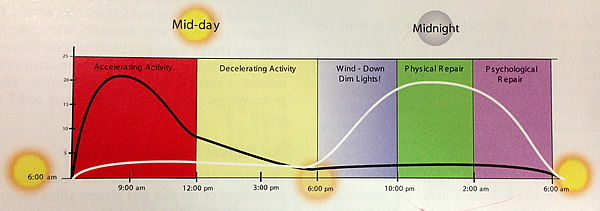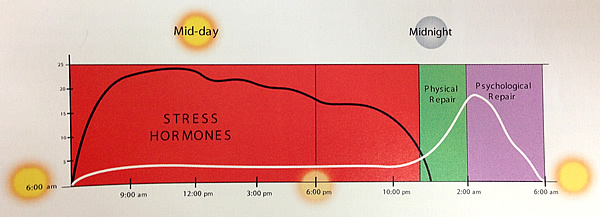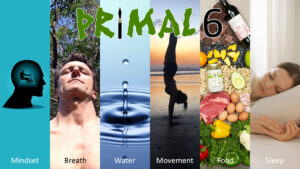Even if you are eating whole foods, moving your body regularly, working on your emotional health and keeping tabs on your stressors, your health may still be in serious decline if you are not attending to one of your body’s most fundamental requirements: sleep. The main recommendation of sleep health is simply to get your 8 hours. But there’s more to it than that. To see how your daily habits may be affecting your sleep and your health,
Take this quick sleep quiz:
Are you a ‘night owl’, with lots of energy at night?
Do you often wake up feeling un-rested and in need of more sleep?
Do you commonly go to sleep after 10:30pm?
Do you often wake up between 1-4am and have a hard time falling back to sleep?
Do you sweat heavily when sleeping?
Do you have a job that requires you to stay up late at night?
Do you watch TV, use the computer and/or mobile phone before bed?
If you answered ‘YES’ to any of the questions, your sleep health habits need serious attention. The detrimental effects of insufficient sleep go far beyond being tired. As the final component of the Primal 6, sleep is an integral factor in whether your health flourishes or fails.
The health consequences of poor sleep habits are too numerous to mention, but here’s a few: headaches, forgetfulness, lack of focus, moodiness, depression, weight gain, adrenal fatigue, low immunity and high inflammation leading to serious disease, including cancers.
But I get the recommended 8 hours of sleep!
We’ve all been taught the magic formula of 8 hours of sleep for staying healthy. And it is true that we need at least 8 hours of sleep each day. However, it’s not enough to simply sleep 8 hours. You must also sleep the right 8 hours and manage your stress hormone levels.
Sleep cycles are in tune with the sun’s cycle
You see, as mammals, human beings have internal rhythms that are in tune with nature, and our sleep/wake cycle is called our circadian rhythm. The circadian rhythm runs in tune with the rise and fall of the sun, and regulates which hormones our body produces at different times of the day. The light produced by the rising sun stimulates production of the stress hormone cortisol, which activates the body for movement, work and survival. These stress hormones peak a few hours after sunrise, then slowly decrease after midday. They eventually give way to increased production of melatonin and other growth and repair hormones, which are essential for growing and repairing the cells in your body, every night.

Natural Sleep/Wake Cycle & Hormone Production
Black Line = Stress Hormones; White Line = Growth & Repair Hormones
Pic: “How to Eat, Move & Be Healthy” Paul Chek 2004
Not all sleep is created equal
So not all sleep is restorative sleep, or sleep that ensures good health. The simple act of falling and staying asleep is not what ensures our body’s growth and repair. It’s all up to the hormone production.
If your body is releasing high levels of the stress hormone cortisol, it can NOT also release high levels of growth and repair hormones.
This chart shows a typical day where stress hormone levels are increased throughout the day, resulting in decreased growth and repair.

High cortisol (stress hormone) levels greatly disrupt restorative sleep.
Pic: “How to Eat, Move and Be Healthy” Paul Chek 2004
How to ensure quality sleep
Therefore, the keys to a restorative 8 hours of sleep are to respect your natural sleep/wake cycle and to prevent your cortisol levels from rising unnaturally past their peak time in the morning.
1/ Be asleep by 10:30pm
Give yourself time to wind down and fall asleep, so that you are actually sleeping by about 10:30pm at the latest. Of course, there will be late nights here and there, but it’s what you do most days that will get your body back into it’s natural rhythm.
2/ Minimize light exposure before bed
Your circadian rhythm only knows that light = sunshine, which signals cortisol release for the day’s activities. So bright electric lights, computers and TV screens will also stimulate cortisol production. Try candles, light dimmers and less screen time a few hours before bed. To learn more about dealing with artificial light, read Chris Kresser’s tips for technology before bed.
3/ Sleep in the dark and wake up with light
For the same reason, it’s very important to sleep in as dark a room as possible. Use good blinds on the window, and dim or cover up any bright alarm clocks and electronic standby lights. Reversely, get exposure to bright light (preferably outside light) as soon as you wake up and throughout the middle of the day.
4/ Avoid stimulants
Caffeine, sugar and tobacco all stimulate the nervous system to produce cortisol. If you must have them, ensure it’s not after midday, so your body has time to process the stimulant out of your blood stream in time to start producing healing hormones for sleep. The all too common afternoon coffee and dessert after dinner are detrimental to your sleep quality.
5/ Exercise, but not too late
Daily physical activity will help you sleep better at night. However, lengthy cardio or intense exercise can increase cortisol levels, so don’t overdo it too late in the day.
6/ Regulate your blood sugar
Your body considers low blood sugar a major stressor, and responds to that stress with, you guessed it, cortisol. Keep your blood sugar levels stable by minimizing processed grains and sugars, and eating regularly. Some people do well with having a small protein rich snack before bed, while others should ensure they are not too full before going to sleep. Listen to your body.
7/ Minimize electromagnetic pollution
Electromagnetic energies can disrupt your sleep/wake cycle. Keep your alarm clock and other electronics a distance from your bed, avoid electric blankets, and unplug or completely turn off most all electrical household appliances at night (especially the wireless modem).
8/ Follow daily routines
Eating and sleeping at regular times helps establish biological rhythms which properly regulate our digestion and hormone production. If your body has been synchronized to a dysfunctional schedule, it’s time to retrain your system to release growth and repair hormones in time for a more restorative sleep.
9/ Manage your daily stressors
In today’s world of hectic schedules, financial pressures, violent entertainment, and deadlines, it’s no wonder that our cortisol levels are out of control. Even if we wind down physically before bed, our minds may still be rushing around, worrying and stressing – even after we’ve gone to sleep. It’s essential that you take steps to slow down, relax, get perspective and nourish your body and soul. Practice some easy ways to meditate and think about the importance of getting your stress hormones down. Now you can really understand one way that stress ruins your health, and have a new perspective on the term ‘a good night’s sleep’.
What factors do you think might be influencing your quality of sleep?
Are Your Daily Habits Affecting Your Sleep Quality? Take the Quiz. – June 2013
References:
 |








